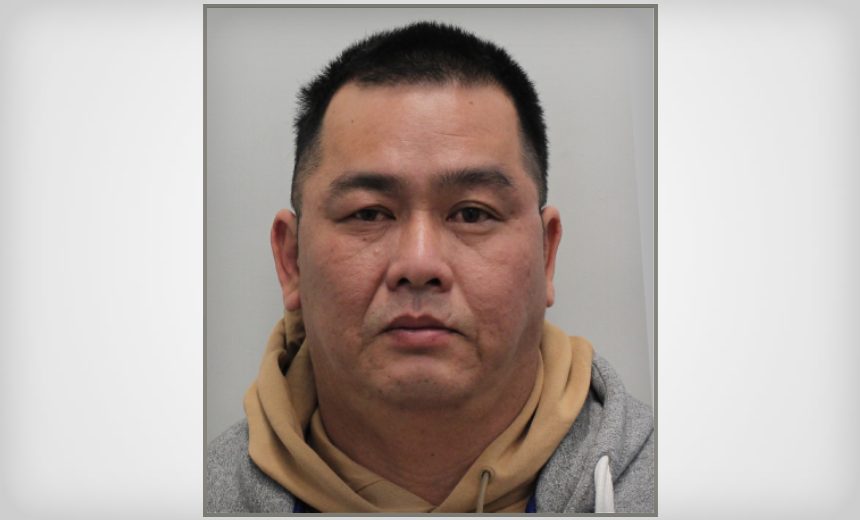Bitcoin Fixer Convicted for Role in Money Laundering Scheme
October 1, 2025
Cryptocurrency Fraud
,
Fraud Management & Cybercrime
$7 Billion Illicit Bitcoin Horde: Malaysian National Latest to Plead Guilty(euroinfosec) •
October 1, 2025

A Malaysian national pleaded guilty Tuesday in an English courtroom to supporting an investment fraud scammer who converted stolen assets into a cryptocurrency treasure trove now worth $7.1 billion.
See Also: OnDemand | 2024 Phishing Insights: What 11.9 Million User Behaviors Reveal About Your Risk
Hok Seng Ling, 46, entered his plea Tuesday at London’s Southwark Crown Court, admitting that he transferred criminal property in the form of cryptocurrency.
The Derbyshire, England-based man was due to stand trial alongside co-defendant Zhimin Qian, a 47-year-old Chinese national – also known as Yadi Zhang – who was charged with fraudulently obtaining cryptocurrency. Qian targeted Chinese investors but fled the mainland in July 2017 after local authorities began an investigation (see: Fraudster Tied to $6.9 Billion Bitcoin Hoard Pleads Guilty).
Ling served as a fixer or “butler” for Qian, including helping her evade capture by recruiting helpers and booking Airbnbs for her across the United Kingdom, prosecutors told the court, reported the Daily Mail.
On Monday, when the pair’s trial was scheduled to begin, Qian pleaded guilty over her role in helping to mastermind an investment fraud scam that laundered stolen assets by turning them into cryptocurrency.
Police surveillance on Ling “led to the discovery of Qian’s presence in Scotland and later York,” police said. Police arrested Qian and Ling in York, England, in April 2024 and seized assets collectively valued at $15 million as of July, including encrypted devices, bundles of cash, gold and cryptocurrency.
Qian and Ling are due to be sentenced at a two-day hearing in November.
Prosecutors say they will attempt to seize cryptocurrency worth more than over $21 million from Ling, and have already applied for control of the 61,000 bitcoins police seized from Qian. The Crown Prosecution Service will ensure “that the criminal assets remain beyond the fraudsters’ reach,” said Robin Weyell, deputy chief crown prosecutor.
British statute gives prosecutors powers of confiscation following a criminal conviction as well as the ability to apply to the High Court for civil recovery.
A potential showdown looms between prosecutors and Chinese victims, since British law allows them to apply for compensation. “The outcome could set a precedent for how U.K. courts handle compensation in cross-border crypto fraud cases,” Comsure Compliance said.
In response to questions about compensating Chinese victims, the Crown Prosecution Service in October 2024 said that while “the U.K. is mindful of its international treaty obligations with respect to any recovered assets,” the civil cases against defendants needed to conclude before any “state to state engagement” could take place.
What the Butler Knows
Investigators said Qian “played a leading role” in a Ponzi-style investment scheme in China, run by a company named Tianjin Lantian Gerui Electronic Technology Co Ltd, aka Blue Sky, that stole $6.2 billion from 128,000 victims. Her company reportedly offered cryptocurrency, financial technology and elderly care products that promised annual returns of 100% to 300%.
Chinese authorities have already arrested over 50 suspects tied to the scheme.
Prosecuting Qian in Britain posed numerous potential challenges. These included obtaining witness statements from Chinese victims, questions over whether evidence gathered by Chinese authorities is admissible in British court and jurisdictional questions pertaining to prosecuting the fraud or conversion of stolen assets into crypto, given the apparent lack of British victims and fact that it occurred overseas.
Following a lengthy investigation by the Met and cooperation from Chinese law enforcement, prosecutors applied money laundering statutes under Britain’s Proceeds of Crime Act 2002 that criminalize acquiring and possessing criminal property. The act “is more straightforward to prosecute based on U.K.-based evidence,” such as cryptocurrency wallet access and attempts to purchase property, Comsure Compliance said.
Qian used a fake St. Kitts and Nevis passport to enter the U.K. in 2017, smuggling in laptops containing the cryptocurrency assets. In 2018, she attempted to launder the bitcoin by purchasing property, assisted by a London-based Chinese woman named Jian Wen.
Wen, who’s now 43, was found guilty in March 2024 of money laundering, and sentenced two months later to six years and eight months in prison. “Met investigators proved she had been involved in facilitating the movement of a cryptocurrency wallet, which contained 150 bitcoins,” then worth $2.3 million and now worth $17 million, police said.
Search
RECENT PRESS RELEASES
Related Post




